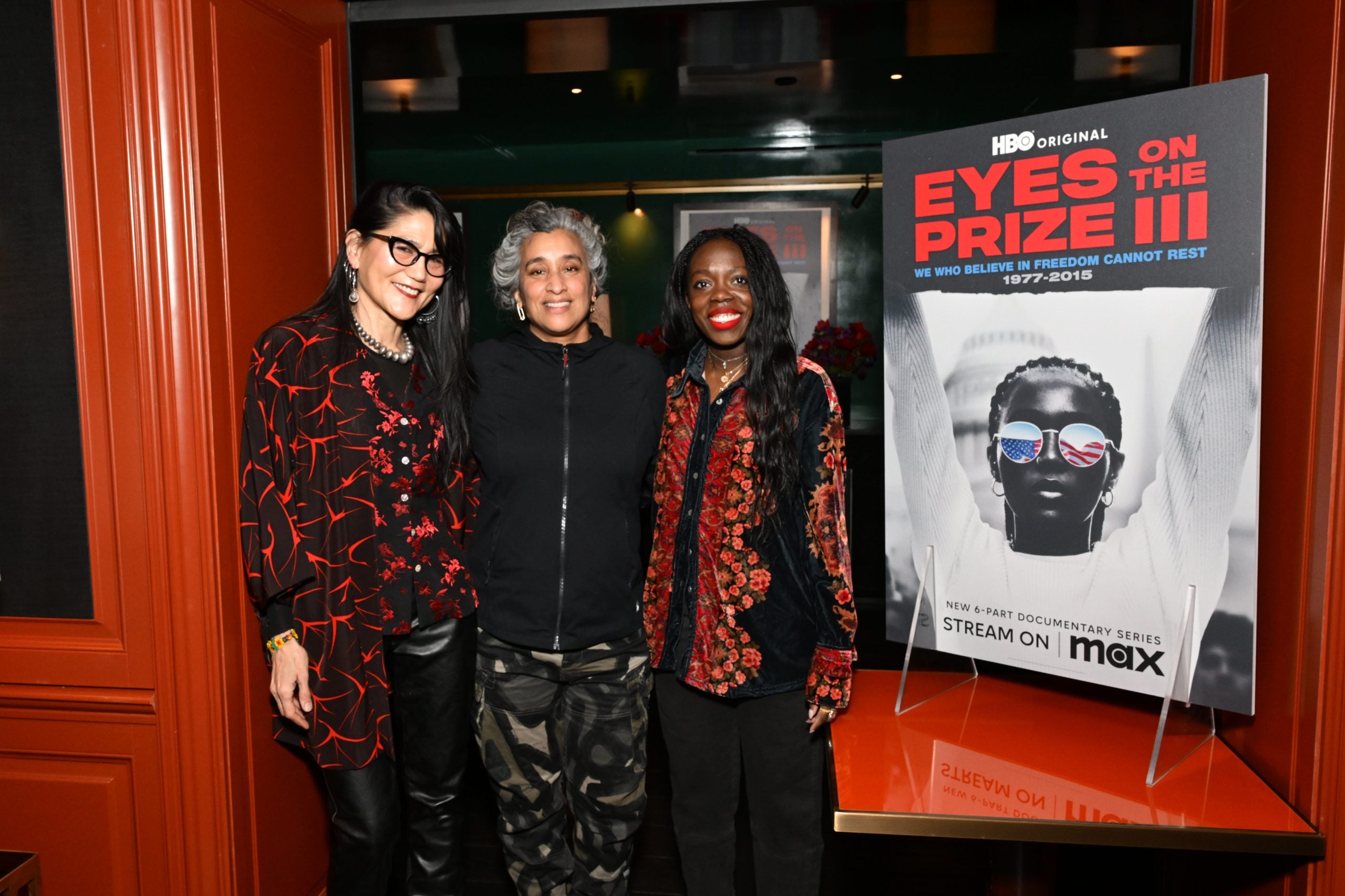
There’s an adage that says, “History unspoken and unlearned, repeats itself”, and this is why it’s important to archive history in a manner that makes it easily accessible for the next generation to continue to carry the torch. On Friday, February 21st, Time CEO Jessica Sibley and Civil Rights attorney Ben Crump hosted a luxurious and intimate luncheon to celebrate the release of HBO Max’s newest installment in the renowned “Eyes on the Prize” documentary series entitled, “Eyes on the Prize III: We Who Believe In Freedom Cannot Rest 1977-2015” which premieres on February 25th. This third installment of the series continues to document moments in America’s history that highlight the perpetual pursuit of civil rights, equity, and racial justice in America.

The beautifully curated luncheon took place at Casa Tua Restaurant on Manhattan’s Upper East Side, and it was the perfect location for cozy conversations around equity, justice, and legacy. Notable guests included the likes of HBO’s SVP of Documentary Programming Sara Rodriguez, Native Son CEO Emil Wilbekin, WIE Suite CEO Dee Poku, Global VP of DEI at Tiffany & Co Stephanie Oueda, TIME CMO Sade Muhammad, Editor in Chief THEM Magazine Sarah Burke, Mike Muse among others who were all eager to discuss the many powerful themes throughout this new series.

Executive produced by Dawn Porter (John Lewis: Good Trouble), this six-part HBO original docuseries is directed by a different director in each episode, adding to the docuseries’ overall effectiveness in showcasing that it takes a collaborative effort from people from various walks of life to collectively join together for the greater good of all. It takes a village to stay in remembrance of the legacy of civil rights in America. Sibley echoed this sentiment and shared, “Eyes on the Prize III was a powerful and moving reminder of the struggle for civil rights in America. We were honored to host this luncheon to celebrate the release of the series, and to continue the conversation about race and equality.”
Building upon Henry Hampton’s original 1987 docuseries, Eyes on the Prize III, gets even more up close and personal with the people and communities doing the work every day. Crump expressed his enthusiasm for the series stating, “Eyes on the Prize III serves as a vital chronicle of American history. In today’s world, it is essential to grasp the strength of our community and to project that understanding outward. I felt privileged to celebrate with some of the series directors and the team dedicated to sharing our narratives—the human experience.” The series combines interviews with those who have participated in movements from the past and present, and the archival footage coupled with contemporary conversations makes for powerful intergenerational content.
The event provided an atmosphere conducive to meaningful conversations around the topics highlighted in the series, and attendees spoke with some of the producers and directors of the series. On the timeliness of the docuseries, Leslie Asako Gladsjo, Series Producer and Director of Episode 6, which is entitled ‘What Comes After Hope 2008-2015?” stated, “When we were making this series, we were focused on preserving this untold history – we didn’t realize how timely it would turn out to be.” Gladsjo’s episode chronicles the years of America’s first Black president and the emergence of the Black Lives Matter movement.
While some ponder whether or not having continual conversations around civil rights and social justice is relevant for this current generation, Samantha Knowles, Director of Episode 2 entitled “Trapped:1989-1995” shared that it’s necessary to look back to civil rights leaders of the past to know how to move forward. “My episode is set in the early 90s, and chronicles the criminal system and profiles public defenders. When I read James Forman Jr.’s Pulitzer-prize-winning book, Locking Up Our Own, it was formative for me, because as a public defender in the ’90s, he saw his work as an extension of his father’s work in the ‘60s. And, it provided a framework for our episode, because it solidified the reality that we exist inside this larger legacy. And, we were excited to bring in those parallels visually.”
Geeta Gandbhir, Director of Episode 1 entitled, “America, Don’t Look Away 1977-1988” shared similar sentiments on the necessity to value those who have done the work in decades past. Gandbhir shared, “I am so honored to follow in the footsteps of the brave filmmakers who made the original Eyes on the Prize III series in uplifting our leaders, activists, and everyday people who continue to fight for liberty, equity, equality, and justice against all odds.”
Surrounded by luxury and treated to the best cuisine any menu could offer, attendees left the luncheon further pondering what role we all play in the pursuit of equity and how we can all show up better for others. But, isn’t that the goal? Having access to empower others. Timely conversations matter and films, television shows, and documentaries are an excellent way to keep the right conversations going.
‘Eyes on the Prize III’ premieres on February 25 on HBO and will stream on Max.
